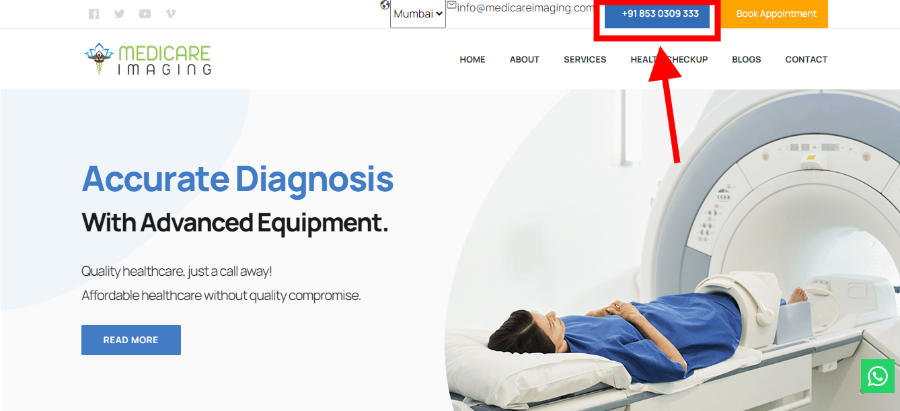As we navigate the complexities of healthcare, understanding what services Medicare covers can be a daunting task. Radiology, a vital diagnostic tool, often raises questions about its eligibility for coverage under Medicare. In this comprehensive guide, we’ll explore the intricacies of claiming radiology services on Medicare, ensuring you have the knowledge to make informed decisions about your healthcare.
Medicare’s Radiology Coverage: A Comprehensive Overview
Medicare, the federal health insurance program for individuals aged 65 and older, as well as certain younger individuals with disabilities, provides coverage for a wide range of radiology services. According to the Centers for Medicare & Medicaid Services (CMS), Medicare generally covers:
- X-rays, including portable x-rays
- Computerized Axial Tomography (CAT) procedures, also known as CT scans, including portable CT procedures
- Magnetic Resonance Imaging (MRI) procedures
- Magnetic Resonance Angiography (MRA) procedures
- Nuclear Medicine Imaging procedures and radionuclides used in these procedures
- Diagnostic mammography and certain screening mammography
- Ultrasound (US) diagnostic procedures
- Positron Emission Tomography (PET) and diagnostic imaging agents
- PET scans for certain oncologic conditions
- Radiation Oncology
- Bone Mass Measurements
It’s important to note that for Medicare to cover these radiology services, they must be deemed medically necessary by your treating doctor or other healthcare provider.
Understanding Medicare’s Coverage Criteria
Medicare’s coverage of radiology services is contingent upon specific criteria. To ensure your radiology services are covered, they must meet the following requirements:
- Physician’s Order: Your treating doctor or healthcare provider must order the radiology service, deeming it medically necessary for the diagnosis or treatment of your condition.
- Accreditation Requirements: Effective January 1, 2012, Medicare requires that the technical component (TC) of Advanced Diagnostic Imaging services, such as MRI, CT, and Nuclear Medicine Imaging (including PET), be billed only by providers and suppliers accredited by one of the following organizations:
- The American College of Radiology
- The Intersocietal Accreditation Commission
- The Joint Commission
Costs and Payment Considerations
While Medicare covers a significant portion of radiology services, you may still be responsible for certain out-of-pocket costs. Here’s what you need to know:
- Part B Deductible: Before Medicare begins covering your radiology services, you must meet the annual Part B deductible. For 2023, the deductible is $226.
- Coinsurance: After meeting the deductible, you’ll typically pay 20% of the Medicare-approved amount for radiology services covered under Part B.
- Facility Copayment: If you receive radiology services in a hospital outpatient setting, you may also be responsible for a separate facility copayment.
It’s crucial to discuss the potential costs with your healthcare provider or facility before undergoing any radiology procedure. This will help you understand your out-of-pocket expenses and plan accordingly.
Navigating the Claim Process
To ensure your radiology services are accurately claimed and processed by Medicare, follow these steps:
- Obtain a Physician’s Order: Ensure your treating doctor or healthcare provider orders the radiology service and documents its medical necessity in your medical record.
- Choose an Accredited Provider: If you require advanced diagnostic imaging services, such as MRI, CT, or PET scans, make sure the facility or provider is accredited by one of the approved organizations.
- Submit the Claim: Your healthcare provider or facility will submit the claim to Medicare on your behalf, using the appropriate billing codes and modifiers for the radiology service rendered.
- Review the Explanation of Benefits (EOB): Once your claim is processed, Medicare will send you an EOB detailing the services covered, the approved amount, and your out-of-pocket costs.
By following these steps, you can streamline the claim process and ensure you receive the radiology coverage you are entitled to under Medicare.
Exploring Alternative Coverage Options
While Medicare provides comprehensive coverage for radiology services, there may be instances where additional coverage is necessary. Consider exploring the following options:
- Medicare Supplement Insurance (Medigap): Medigap policies can help cover some of the out-of-pocket costs associated with Medicare-covered services, including deductibles and coinsurances for radiology services.
- Medicare Advantage Plans: These plans, offered by private insurance companies approved by Medicare, may include additional benefits and coverage for radiology services beyond what Original Medicare provides.
By understanding your coverage options and eligibility requirements, you can make informed decisions about your healthcare and ensure you have access to the radiology services you need.
Conclusion
Radiology plays a crucial role in modern healthcare, and understanding its coverage under Medicare is essential for ensuring you receive the diagnostic services you require. By familiarizing yourself with Medicare’s coverage criteria, costs, and claim processes, you can navigate the radiology landscape with confidence. Remember, early detection and accurate diagnosis can often lead to better health outcomes, making radiology services an invaluable component of your healthcare journey.
How Do I Submit a Claim to Medicare?
FAQ
How do you bill for radiology?
Is a CT scan covered by Medicare?
How much does Medicare pay for MRI scan?

